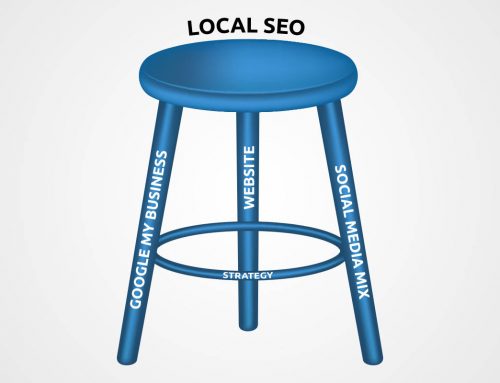7 Tips for Hiring a Website Developer
With the growing importance of having a solid presence online, selecting a website developer may be one of the more important hires you make. The company or individual you choose with greatly impact how your company is viewed online, as well as, influence your company’s ability to succeed online. Failing to hire a strong fit could negatively impact your business and possibly waste time and money as you seek to find a replacement.
Hopefully, the following tips will help you navigation through the process of selecting a website designer:
1. Personality Matters
Not every website developer is going to be a good fit, and surprisingly it will have more to do with how well they fit your business personality than their experience in developing and designing websites. While you don’t want to completely discard their experience (or lack of), finding someone you can communicate well with will increase the probability of having a good experience and finding a possible long-term partner to work with as your business grows. Look at the characteristics you encourage within your company and determine if the person you’re hiring as your website developer fits.
Often, personality matches can get you much further quicker than simply hiring a developer with niche experience for your industry. Many of the “dental website” developers seem to fall more into routine style development, rather than really getting into the personality of a dentist office when designing and creating content for the website.
Make a list of Personality Priorities you are looking for in a website developer. Are they driven? Are they flexible? Do they work well with a team? Make sure the developer you hire matches up with at least more of these characteristics than not. Be creative in how you determine personality matches so it won’t be easy for them to fake.
2. Aptitude and Agility may Trump Specific Skill Sets
In the ever evolving world of online development, knowledge of one platform or another could make certain skills obsolete. Take a look at FLASH designed websites, for example. While extremely technical and beautiful, it’s an art form being abandoned in web development due to the direction technology and users have dictated. If the developer is agile and flexible in their approach to developing websites, they’ll be more likely to assist your company through phases of growth and development/programming requirements to succeed online.
A few questions you could ask to help determine if they’re flexible or not might be:
3. Trivia Answers Aren’t Real Answer
A pop quiz on the history of website development or information you’ve read on a blog post won’t tell you what you need to know about your developer. Here are some examples of pop quiz questions to avoid when interviewing website developers:
It’ll be much more productive to present your problems or goals with the website you currently have (or the one you have in concept) and ask the developer how they would go about developing the website and why. Answers to those questions will gain more confidence in their capability to meet your needs than knowing they can memorize facts about programming history.
And, because website projects are always a process, met with various stages of approval being needed, it’ll be important to gain some insight on what the working relationship will be like. Ask questions like:
These questions will give you a greater sense of their passion in what they do, as well as learn how well they are going to be able to communicate with you.
4. Budget Friendly
This doesn’t mean go for the cheapest, rather be certain to weigh out all the benefits against the costs associated with choosing a developer. There are myriad options to turn to as a business to have a website complete and running. From Do-It-Yourself options like Wix, SquareSpace, GoDaddy templates, or BigCommerce where you’re given choices of templates to add your logo and content to where the cost may be free to only a small monthly amount, to websites built on CMS systems with themes or designs, to custom sites, your focus should be more on whether the website developed meets your minimal needs or more in having the site launched.
More custom and complicated website can easily reach the tens of thousands in budget requirements, whereas you should most sites for small businesses to be in the $1,200 to $3000 range. Graphic design, content creation and function requirements will greatly determine the budget proposed by the developer.
5. Don’t Take Their Portfolio Literally
Being a good fit for developing your website may not mean they have a portfolio filled with work identical to what your project needs are. A diverse portfolio shows you the developer doesn’t focus on turnkey website development practices, rather takes on various challenges and builds solutions for a variety of business categories. Certainly, going with a developer with a niche might mean getting a website completed quicker, but will their “template” or “canned solution” meet your future demands, or even your current demands as a business you would hope to use to set yourself apart from others in your industry? If you’re asking questions about approaches to developing your website, you might expect to have multiple websites referred to by a diverse developer as they offer up examples of how elements of what you’re looking for have been completed in other sites.
6. What’s Next?
A good developer should give you some idea of what to expect should you select them, but in case you don’t hear that in the conversation, it’s important for you to know their process from beginning to end.
7. Breaking up is Hard To Do…
… but a never ending project can be downright costly and painful. If you’ve been diligent in providing your developer with content and images, as well as feedback and input, but your developer has major delays or keeps missing their own deadlines, you might have a problem. When they aren’t able to keep the pace they set in their own proposal and aren’t communicating to you, rather just going off radar between lapses in work completion, this can become costly to your business and negatively affect your own business internally.
Personal pride in making the hire of that developer might slow you down in making a decision to fire them and move on, but you can’t let that prevent you from doing what’s needed to get things back on track. When missing deadlines or failing to produce designs or results as well in reality as they promoted in concept during the proposal phase, it’s time to take a serious look at the developers you turned down and bringing them on board after letting the first developer go.






